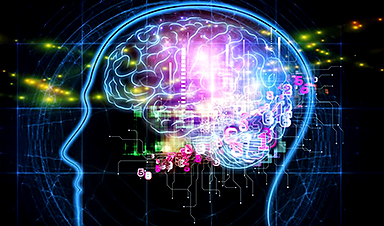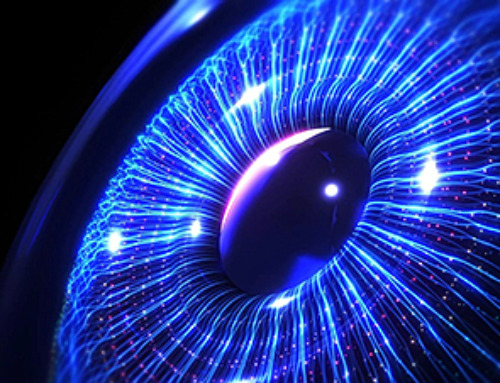
The text of the video commentary:
Elon Musk’s new project Neuralink has been making headlines recently, but very little is known about this mysterious company so far. We’re going to answer the question ‘What is Neuralink?’ and let you know why you should be paying very close attention.
I’m Zachary Maslanik, lead video producer at cybrink.com and I will be bringing you up to date with all the latest developments in science, technology and business. Cybrink will be your window into the future, so subscribe now for more content.
So what is Neuralink?
Back in 2015, Professor Pedram Mohseni and Rudolph J. Nudo created a startup called ‘NeuraLink’. These pair of neurotech researchers had developed a device that could potentially help people suffering from brain injuries. Investors didn’t show a great deal of interest, but in 2016 a mysterious unknown investor came along with an offer to purchase the rights to the name, Neuralink, for tens of thousands of dollars. They sold, and that investor later turned out to be multi billionaire, Elon Musk.
Fast forward to the 27th of March 2017 and Musk announces that he will be backing a new brain-computer interface venture, Neuralink. The ultimate goal of this new company is to merge man with machine, fusing human intelligence with artificial intelligence to bring humanity up to a higher level of cognitive reasoning. Without this technology, Musk argues that humans will be unable to keep pace with advances in artificial intelligence, and that humans will become the intellectual equivalent of the house cat.
So far, Musk has been calling this brain-computer interface technology ‘neural lace’. In essence, neural lace is an ultra-thin mesh that is implanted in the skull, and forms a body of electrodes which are able to monitor brain function. It’s not entirely clear at this time how far along the technology is in its development phase. But eventually, neural lace should enable humans to upload or download information directly from a computer. Just like Neo from The Matrix, in a matter of minutes you too could proclaim, “I know Kung Fu”.
In order to insert neural lace, a tiny needle which contains the rolled up mesh is placed inside the skull, whereby the mesh is then injected. The mesh unravels upon injection, encompassing the brain. Gradually, the neural lace will integrate itself with the human brain, creating a perfect symbiosis between man and machine. So far, neural lace has been tested on live mice. Upon autopsy, researchers found little negative consequences associated with the insertion of this mesh-like structure. However, I’m not sure if I want to be the first human volunteer.
This technology sounds amazing. The ability to hook up our brains with machines and thereby enhance human intelligence could open up whole new worlds of possibilities for our species.
It could even be the catalyst for the almost mythical technological Singularity. More on this another time. However, some critics are raising concerns about the ethical and real world implications and consequences of this technology.
For example, in a world where everyone’s thoughts are connected to the internet, how would this affect our personal privacy? Would authoritarian governments seize upon the opportunity to spy on us or even take control of our minds? And what about computer hackers? Would they be able to exploit vulnerabilities in the software of our minds, or inject viruses directly into our consciousness? All of this remains to be seen.
Until then, let’s just be content that Musk’s Neuralink may be able to help the disabled and those suffering from brain injuries to lead more productive and happier lives in the not too distant future.
Than you so much for watching this video. If you enjoyed it, please make sure to subscribe and leave a like. Here is a question for you! Do you think you will hook up your brain directly with a computer anytime soon or do you think you will you just stick to using your Smartphone for now? If you had any thoughts about this or anything else in the video be sure to leave a comment down below! We’ll see you next time with more interesting insights into the future from cybrink.com.
Image Credit: cybrink.com / Youtube
News This Week
This Simple Brain Exercise May Protect Against Dementia for 20 Years
A long-running study following thousands of older adults suggests that a relatively brief period of targeted brain training may have effects that last decades. Starting in the late 1990s, close to 3,000 older adults [...]
Scientists Crack a 50-Year Tissue Mystery With Major Cancer Implications
Researchers have resolved a 50-year-old scientific mystery by identifying the molecular mechanism that allows tissues to regenerate after severe damage. The discovery could help guide future treatments aimed at reducing the risk of cancer [...]
This New Blood Test Can Detect Cancer Before Tumors Appear
A new CRISPR-powered light sensor can detect the faintest whispers of cancer in a single drop of blood. Scientists have created an advanced light-based sensor capable of identifying extremely small amounts of cancer biomarkers [...]
Blindness Breakthrough? This Snail Regrows Eyes in 30 Days
A snail that regrows its eyes may hold the genetic clues to restoring human sight. Human eyes are intricate organs that cannot regrow once damaged. Surprisingly, they share key structural features with the eyes [...]
This Is Why the Same Virus Hits People So Differently
Scientists have mapped how genetics and life experiences leave lasting epigenetic marks on immune cells. The discovery helps explain why people respond so differently to the same infections and could lead to more personalized [...]
Rejuvenating neurons restores learning and memory in mice
EPFL scientists report that briefly switching on three “reprogramming” genes in a small set of memory-trace neurons restored memory in aged mice and in mouse models of Alzheimer’s disease to level of healthy young [...]
New book from Nanoappsmedical Inc. – Global Health Care Equivalency
A new book by Frank Boehm, NanoappsMedical Inc. Founder. This groundbreaking volume explores the vision of a Global Health Care Equivalency (GHCE) system powered by artificial intelligence and quantum computing technologies, operating on secure [...]
New Molecule Blocks Deadliest Brain Cancer at Its Genetic Root
Researchers have identified a molecule that disrupts a critical gene in glioblastoma. Scientists at the UVA Comprehensive Cancer Center say they have found a small molecule that can shut down a gene tied to glioblastoma, a [...]
Scientists Finally Solve a 30-Year-Old Cancer Mystery Hidden in Rye Pollen
Nearly 30 years after rye pollen molecules were shown to slow tumor growth in animals, scientists have finally determined their exact three-dimensional structures. Nearly 30 years ago, researchers noticed something surprising in rye pollen: [...]
NanoMedical Brain/Cloud Interface – Explorations and Implications. A new book from Frank Boehm
New book from Frank Boehm, NanoappsMedical Inc Founder: This book explores the future hypothetical possibility that the cerebral cortex of the human brain might be seamlessly, safely, and securely connected with the Cloud via [...]
How lipid nanoparticles carrying vaccines release their cargo
A study from FAU has shown that lipid nanoparticles restructure their membrane significantly after being absorbed into a cell and ending up in an acidic environment. Vaccines and other medicines are often packed in [...]
New book from NanoappsMedical Inc – Molecular Manufacturing: The Future of Nanomedicine
This book explores the revolutionary potential of atomically precise manufacturing technologies to transform global healthcare, as well as practically every other sector across society. This forward-thinking volume examines how envisaged Factory@Home systems might enable the cost-effective [...]
A Virus Designed in the Lab Could Help Defeat Antibiotic Resistance
Scientists can now design bacteria-killing viruses from DNA, opening a faster path to fighting superbugs. Bacteriophages have been used as treatments for bacterial infections for more than a century. Interest in these viruses is rising [...]
Sleep Deprivation Triggers a Strange Brain Cleanup
When you don’t sleep enough, your brain may clean itself at the exact moment you need it to think. Most people recognize the sensation. After a night of inadequate sleep, staying focused becomes harder [...]
Lab-grown corticospinal neurons offer new models for ALS and spinal injuries
Researchers have developed a way to grow a highly specialized subset of brain nerve cells that are involved in motor neuron disease and damaged in spinal injuries. Their study, published today in eLife as the final [...]
Urgent warning over deadly ‘brain swelling’ virus amid fears it could spread globally
Airports across Asia have been put on high alert after India confirmed two cases of the deadly Nipah virus in the state of West Bengal over the past month. Thailand, Nepal and Vietnam are among the [...]






















Leave A Comment